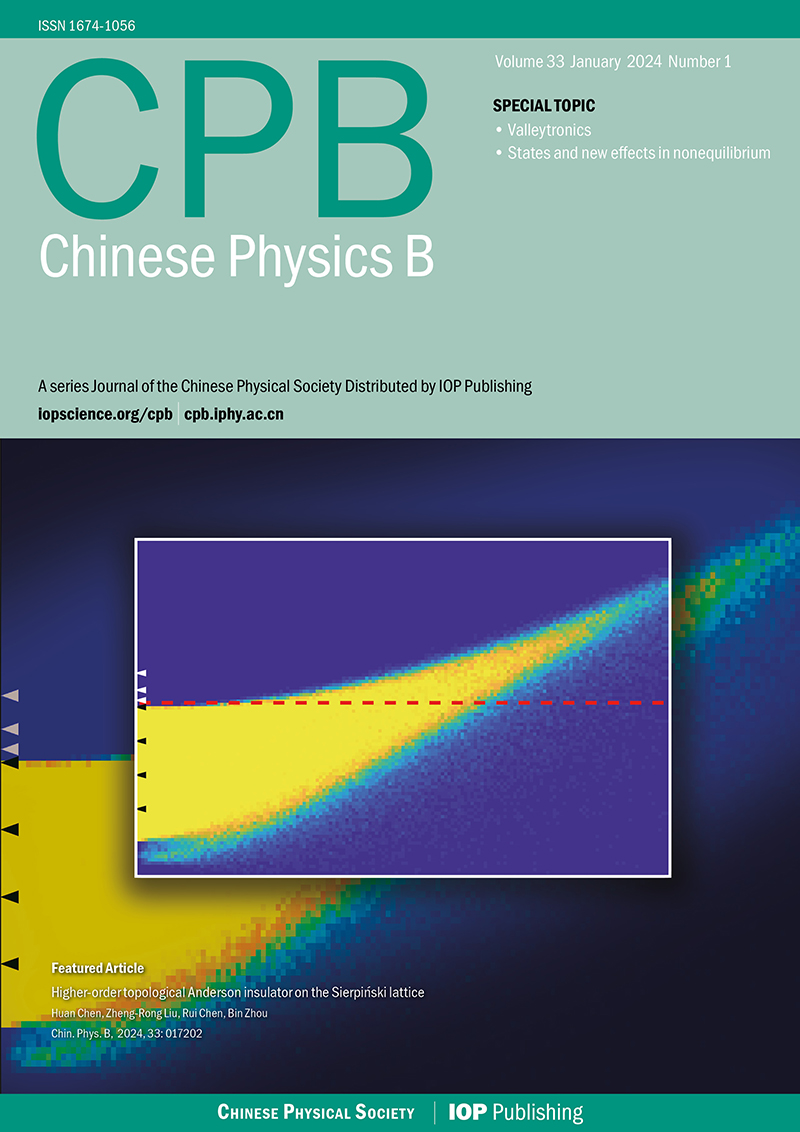Effects of carrier density and interactions on pairing symmetry in a t2g model
IF 1.5
4区 物理与天体物理
Q2 PHYSICS, MULTIDISCIPLINARY
引用次数: 0
Abstract
By utilizing the fluctuation exchange approximation method, we perform a study on the superconducting pairing symmetry in a t2g three-orbital model on the square lattice. Although the tight-binding parameters of the model are based on Sr2RuO4, we have systematically studied the evolution of superconducting pairing symmetry with the carrier density and interactions, making our findings relevant to a broader range of material systems. Under a moderate Hund’s coupling, we find that spin fluctuations dominate the superconducting pairing, leading to a prevalent spin-singlet pairing with a d载流子密度和相互作用对 t2g 模型配对对称性的影响
通过利用波动交换近似方法,我们对方形晶格上的 t2g 三轨道模型中的超导配对对称性进行了研究。虽然模型的紧约束参数是基于 Sr2RuO4,但我们系统地研究了超导配对对称性随载流子密度和相互作用的演变,从而使我们的研究结果适用于更广泛的材料系统。我们发现,在适度的亨德耦合下,自旋波动主导着超导配对,导致载流子密度在每个位点 n = 1.5-4 范围内的自旋-小波配对普遍具有 dx2-y2 波对称性。通过降低亨德耦合,电荷波动增强了,并在决定配对对称性方面发挥了关键作用,导致配对对称性从自旋小波 dx2-y2 波过渡到自旋三重 p 波。此外,我们还发现超导配对与轨道有关。当载流子密度从 n = 4 变为 n = 1.5 时,超导配对的有效轨道从准二维轨道 dxy 转向准一维轨道 dxz 和 dyz。
本文章由计算机程序翻译,如有差异,请以英文原文为准。
求助全文
约1分钟内获得全文
求助全文
来源期刊

Chinese Physics B
物理-物理:综合
CiteScore
2.80
自引率
23.50%
发文量
15667
审稿时长
2.4 months
期刊介绍:
Chinese Physics B is an international journal covering the latest developments and achievements in all branches of physics worldwide (with the exception of nuclear physics and physics of elementary particles and fields, which is covered by Chinese Physics C). It publishes original research papers and rapid communications reflecting creative and innovative achievements across the field of physics, as well as review articles covering important accomplishments in the frontiers of physics.
Subject coverage includes:
Condensed matter physics and the physics of materials
Atomic, molecular and optical physics
Statistical, nonlinear and soft matter physics
Plasma physics
Interdisciplinary physics.
 求助内容:
求助内容: 应助结果提醒方式:
应助结果提醒方式:


